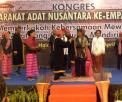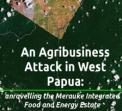- Home
- About
- Campaigns
- Regions
- Themes
- Agrofuels
- Climate justice
- Coastal communities and fisheries
- Disasters
- Economy & debt
- Energy
- Foreign investment
- Forests & forest fires
- Human rights
- Indigenous Peoples
- International Financial Institutions
- Land and food security
- Laws & regulations
- Mining, oil & gas
- Plantations
- Politics & democracy
- REDD
- Regional autonomy
- Transmigration
- Water and dams
- Women
- Publications
- Links
- Contact
Campaign
- Climate Justice and sustainable livelihoods (48)
- Agrofuels and oil palm plantations (32)
- Coal (10)
- MIFEE (4)
Publication
- Newsletter articles (67)
- Special reports & briefings (5)
- Books (1)
- Photos and videos (6)
- Fact sheets and updates (7)
- Press releases & position papers (5)
- Letters (7)
Indonesia








